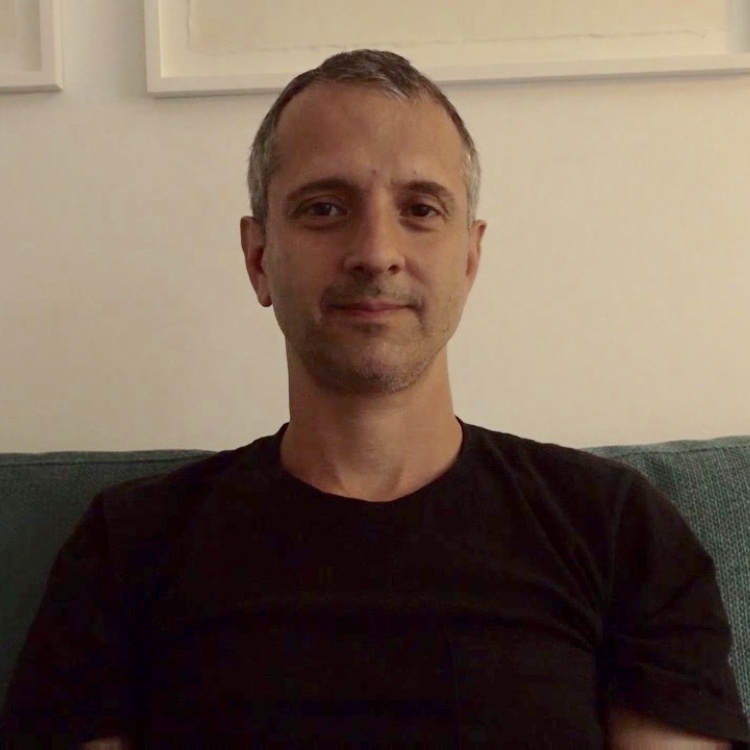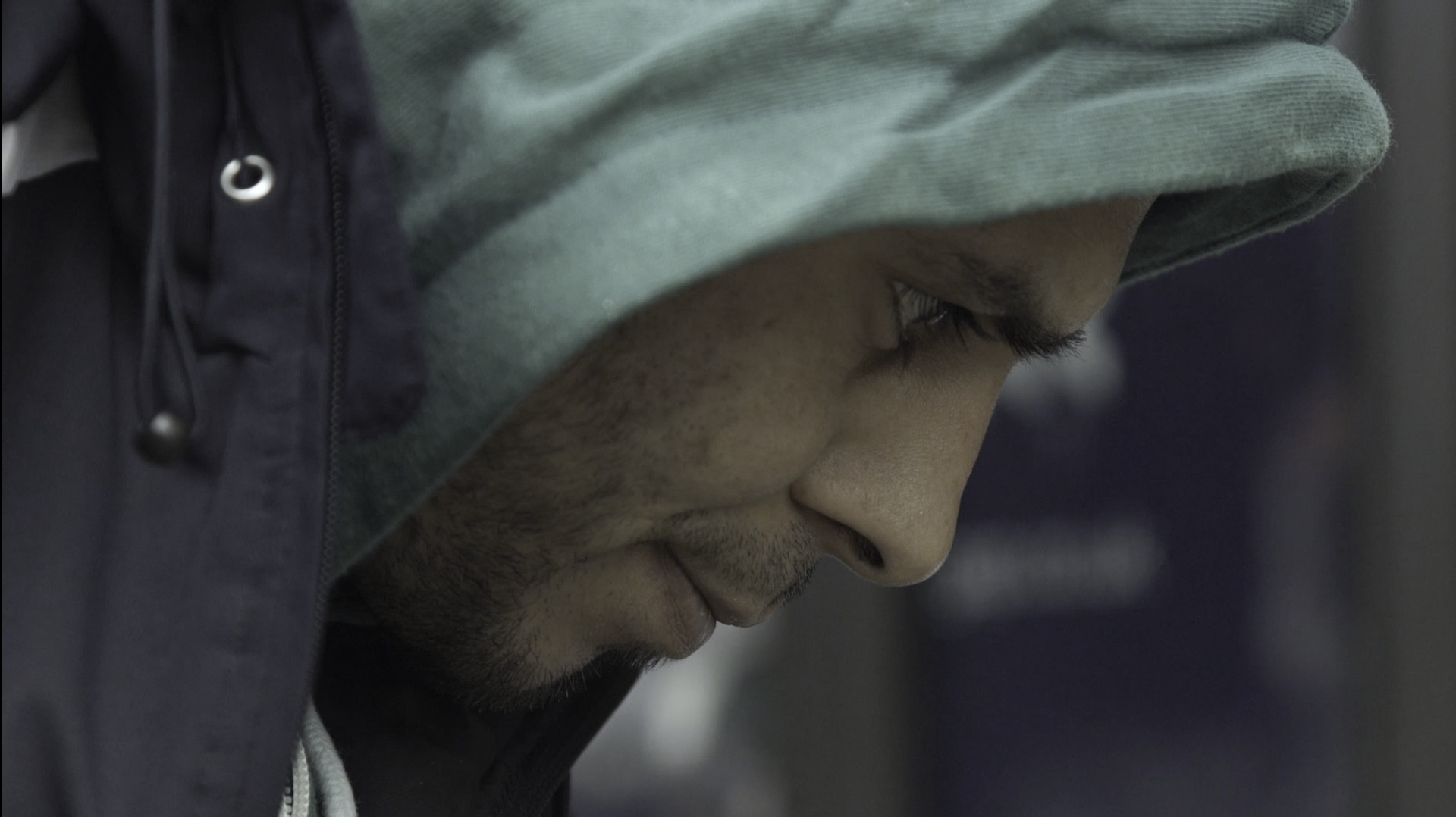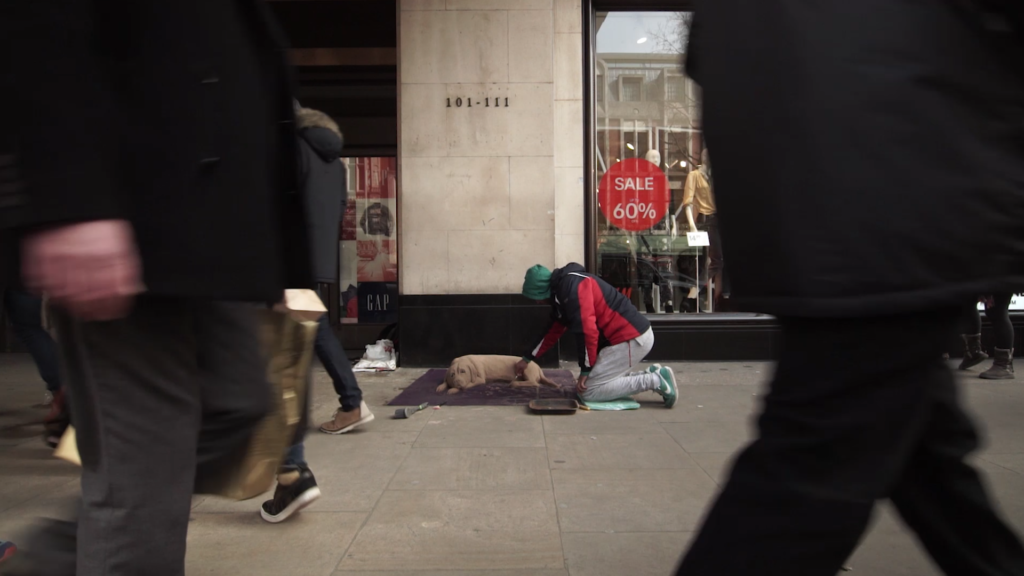Neculai, Aurel and Raj all left their homes in Romania for the same reason: to seek a better life for their family.
Now, in Britain, with their loved ones depending on them, they survive by creating sand sculptures on London’s streets.
They try to find hope in the hardships they endure, while thoughts of their children’s futures keep them going.
Director / Producer: Tal Amiran
Cinematography: Tal Amiran
Editing: Tal Amiran
Sound Design: Rick Blything
Music: Oli Harrison
Foley: Louise Brown
Interview

Tal Amiran
Filmmaker
“When you make a documentary film,
you’re dealing with real people.
These people aren’t actors
and inevitably I form close friendships
with my characters.”
- How did this project start?
The idea for making “Sand Men” came to me by coincidence really. I was actually working on a different film when one morning I was cycling on my way to my studio and happened to cycle passed a sand sculpture of a dog on the pavement on Holloway Road which is a very busy road in London. I immediately stopped my bike to have a look. It was quite surreal – a sand sculpture of a dog which we mostly see on a sunny beach on holiday, was laying there on the grotty pavement.
I just stopped and spent a good few minutes observing it and its sculptor, which I later learned was Romanian. It was later on when I realised this was a broader phenomenon and that quite a few other Romanian people are making similar sand sculptors on pavements all across the UK.
- How did you meet Aurel, Neculaj and Raj?
Finding my contributors wasn’t as easy as I first thought: I was a told there were quite a few sand sculptors dotted around North and West London but it was actually quite a quest finding them. I was given “tips” from people who said they saw them and asked shop owners to call me when they come across a sand sculptor, as they were often moving around and were difficult to pin down!
I visited some of the locations but wasn’t always lucky finding them. Subsequently I met Aurel, Neculai and Raj. We started communicating and gradually trust and friendships were built, enabling me to pursue the project.

- How did the production go?
The main challenge I was facing during production was actually the language barrier, as non of the film’s three characters spoke English. We had to communicate using a Google Translate app on my phone, as well as using interpreters. The film wouldn’t have happened without the help of three amazing Romanian interpreters who worked with me throughout production and post production.
- Around Aurel, Neculaj and Raj you show a lackluster, sad London, in decline, without faces. Some may also perceive a certain distance in the way you tell this story. What was your approach?
In my last two short docs I utilised a similar stylistic approach in form – I shot vérité and then conducted audio interviews with my contributors which were later used as voice over playing under the observational footage I shot.
I never arrive with a preconceived agenda when I come to make a film. It always starts with a sheer curiosity about the subject and the people as I have to learn and explore a subject and get to know my contributors. However there is always a bigger subject I’m interested in when I come to make a film and in “Sand Men” it was immigration and the anti immigration sentiment in England in recent years, subsequently leading to the Brexit referendum results, which I find very depressing.
I hope that I’m able to tell a bigger story by focusing on individual stories without being didactic and without telling the audience what to think. In my films I invite the audience to go on a journey, making up their own mind. The film has to be open ended and open for the viewer to bring their own thoughts and emotions.

- Are you still in touch with these three men? If so, how are they?
I’m very much in touch with two of the characters in the film. When you make a documentary film, you’re dealing with real people, these people aren’t actors, and inevitably I form close friendships with my characters.
There’s a bond that gets created between me and my contributors. We might not speak on the phone every month but we do keep in touch and I’m always happy to help if I can. I actually also created a GoFundMe campaign at the time in order to help the film’s contributors.
- What are your projects? What are you working on now?
I’m currently in production with my new film. All I’d say at this moment is that the film takes place in Paris and focuses on the subject of immigration again, but this time with a slightly different approach. The film will also be longer than my previous two shorts and I look forward to sharing it with audiences once it is completed!
- A word about 99 and the multilingual subtitling of your film?
I really appreciate the work 99 does. It’s not often that a film gets translated into various languages and I think the work that 99 does is really important, expanding the film’s reach, making it accessible to audiences which otherwise might not have a chance watching these films due to the language barrier.
